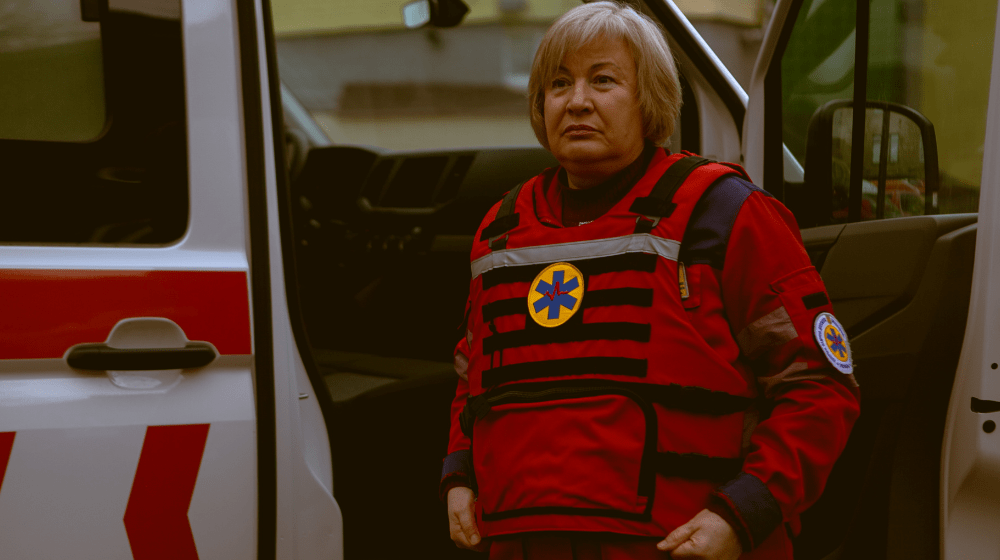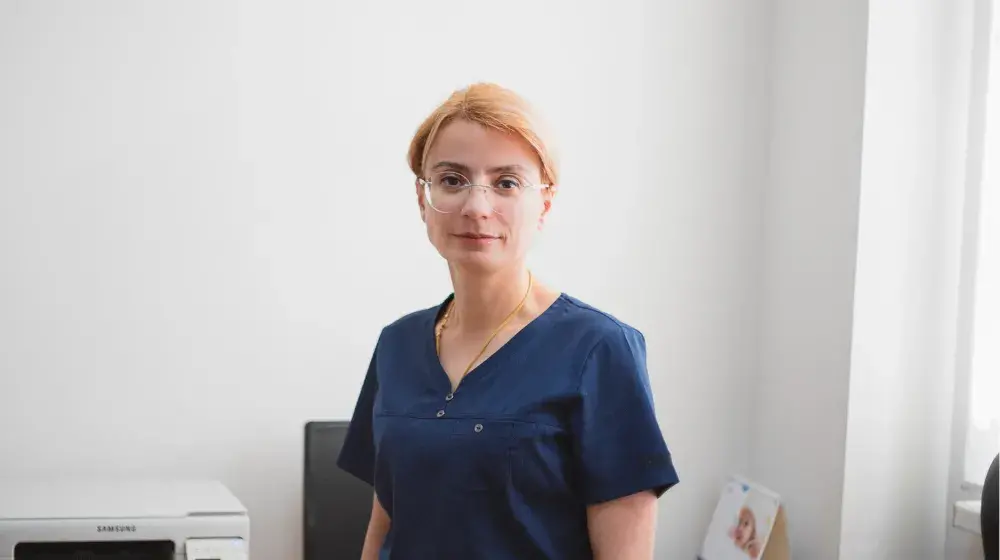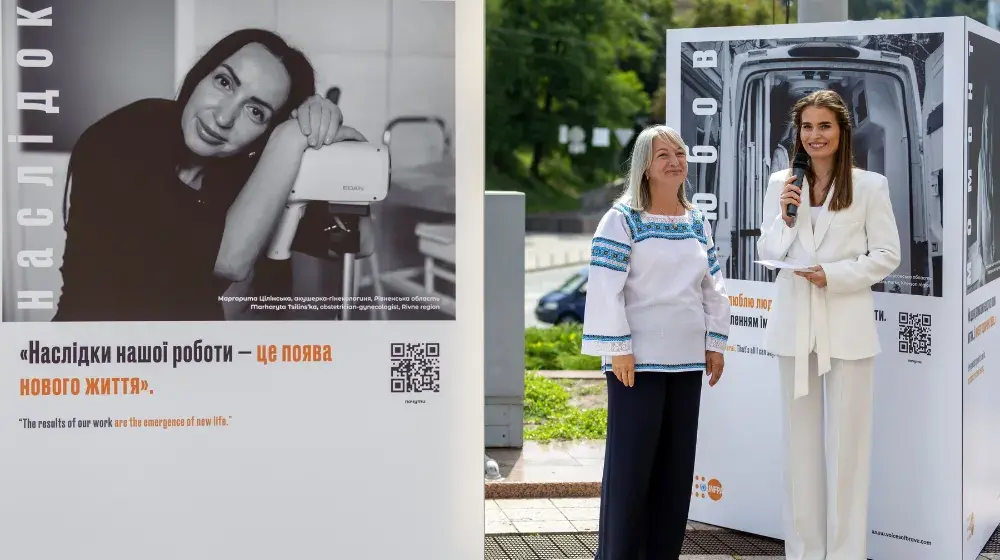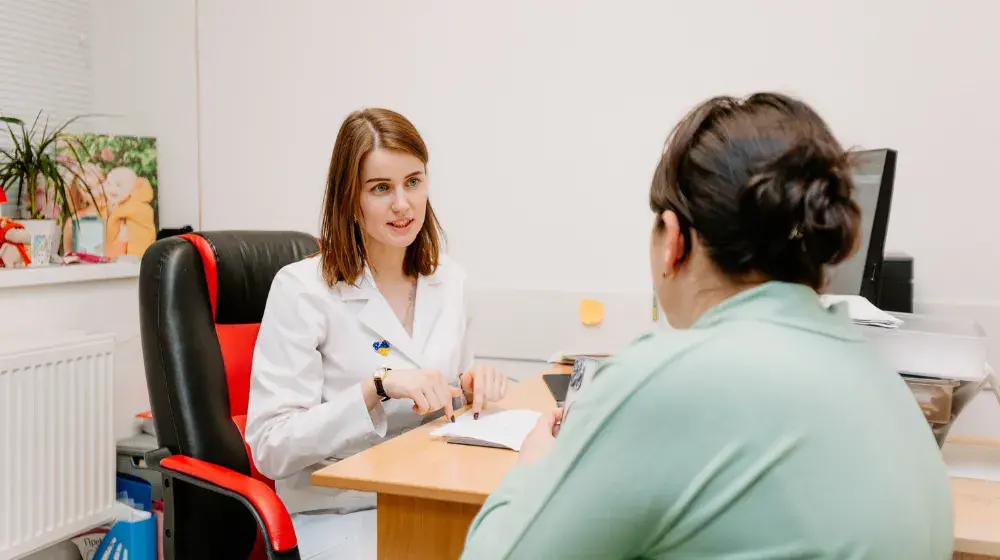Olena works at the Disaster Medicine Center in the Kharkiv region, an area in East Ukraine, close to the frontline. She’s a doctor specializing in anesthesiology, but she now she must also perform a range of other duties. Since the first days of the full-scale invasion, she has assisted in transporting infants to safe regions, worked in operating rooms, and provided medical support to displaced persons.
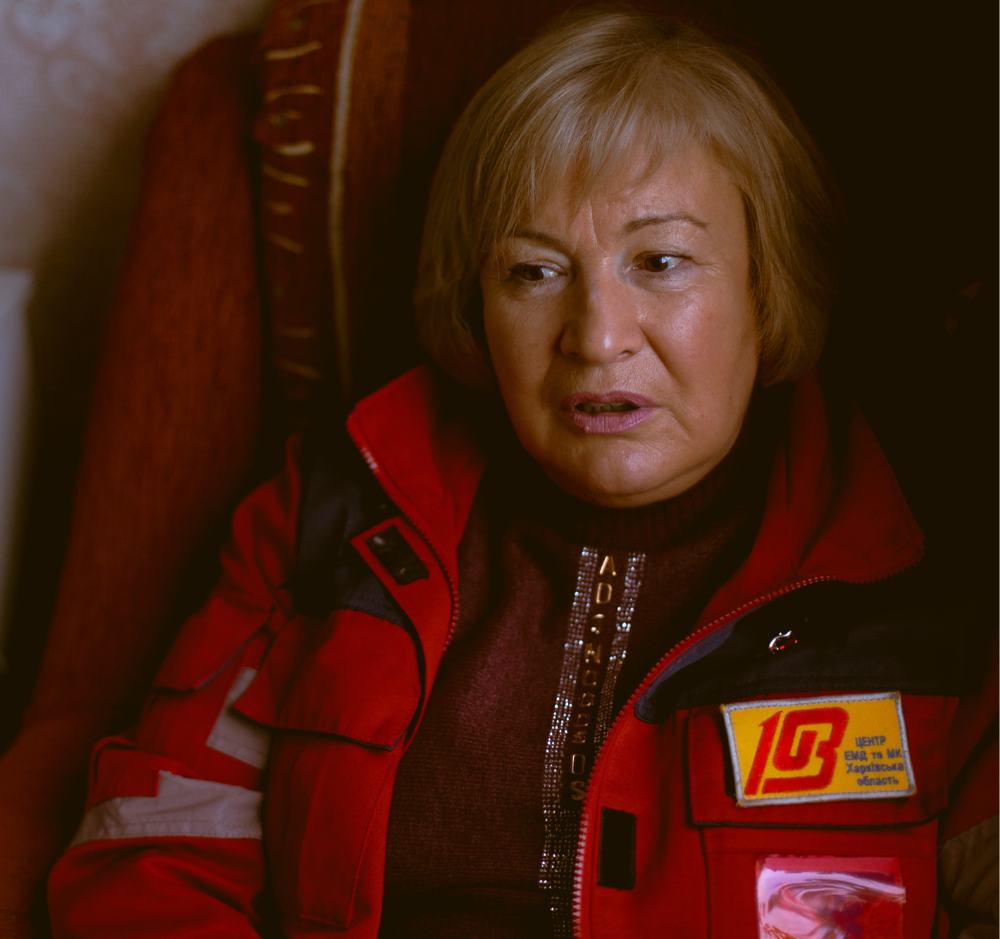
"In this region, there are many internally displaced persons who have evacuated from Bakhmut and Kupiansk to safer areas within the region. They’re happy to see us. In these settlements, 15-30 km from the frontline, it has been impossible to visit specialized medical professionals, such as gynаecologists, for about two years. Despite the cold and frost, our mobile gynаecological team takes care of 20-40 residents at a time. People are eagerly waiting for us," Olena shares about her work situation.
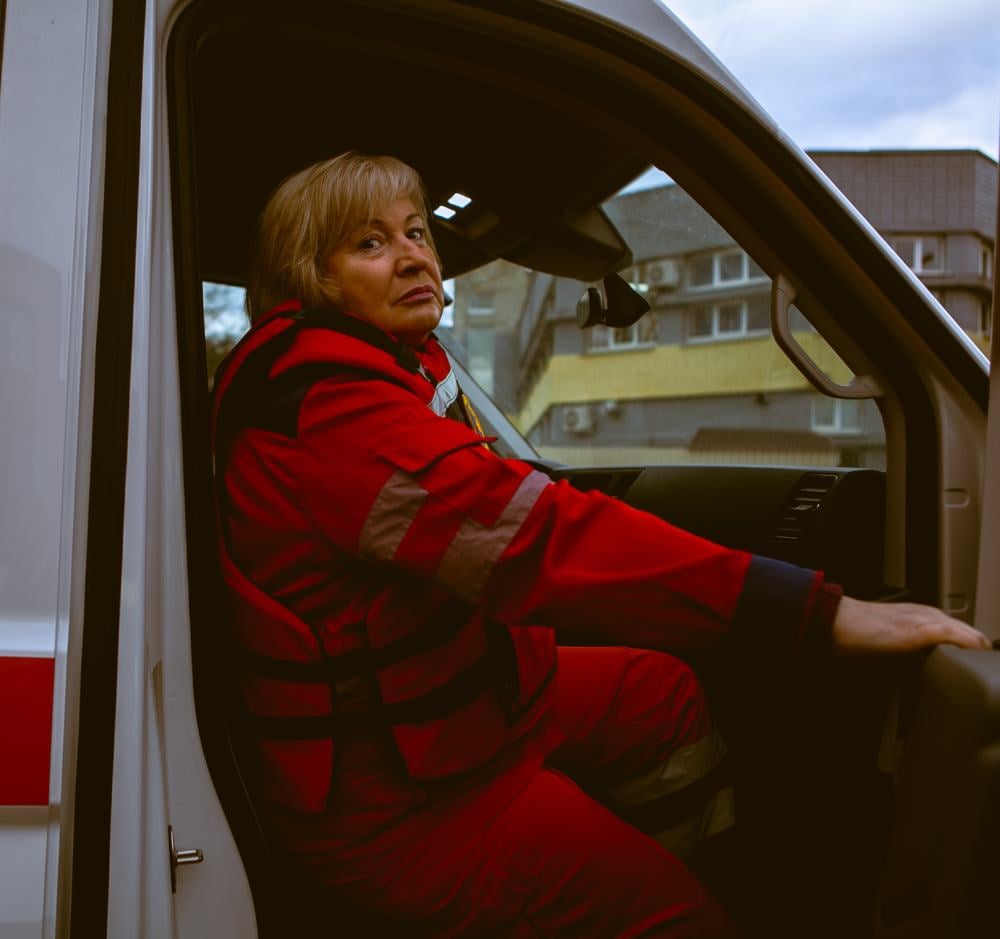
"I am responsible for the logistics of the mobile gynаecological teams. It is often challenging for our medical staff to reach target settlements because the roads are damaged due to shelling and military equipment movement. The State Emergency Service of Ukraine helps us to reach our destinations," Olena shares.
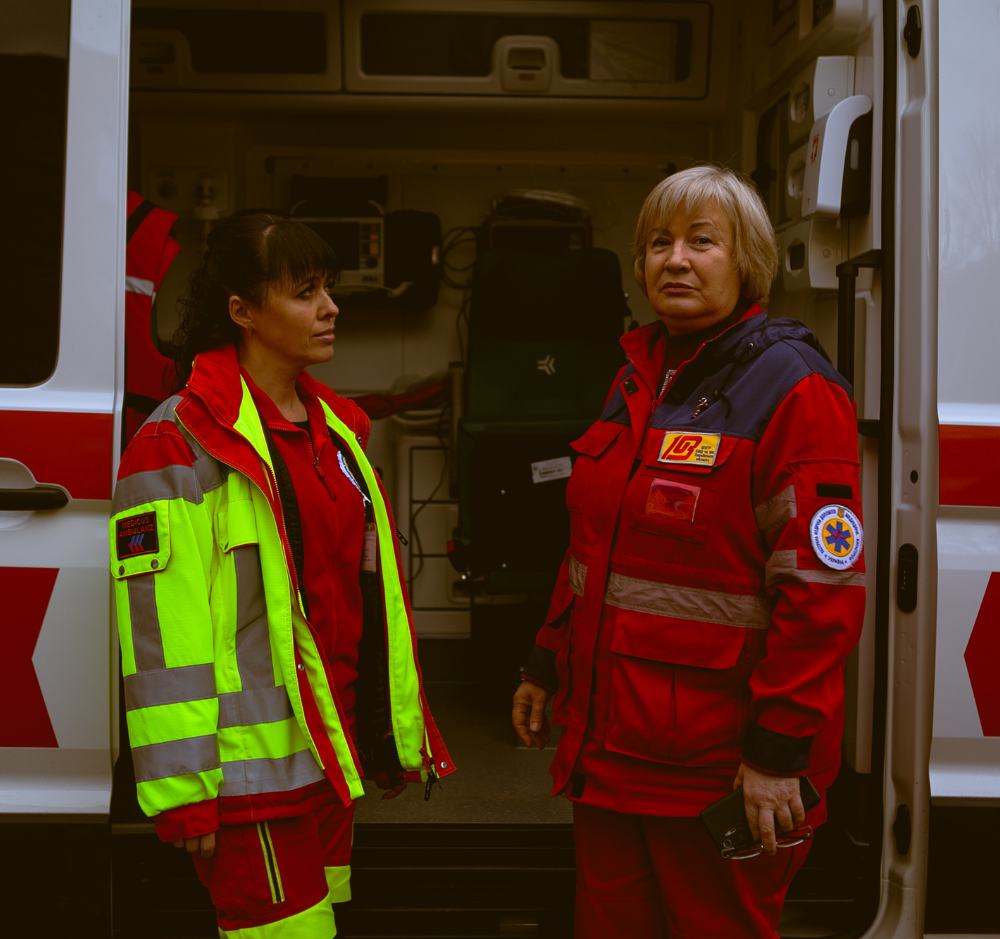
"There are still children in the dangerous zones of the region. These are usually families from vulnerable categories. Therefore, it is important to have a pediatrician in the teams, providing consultations to the children," Olena notes.
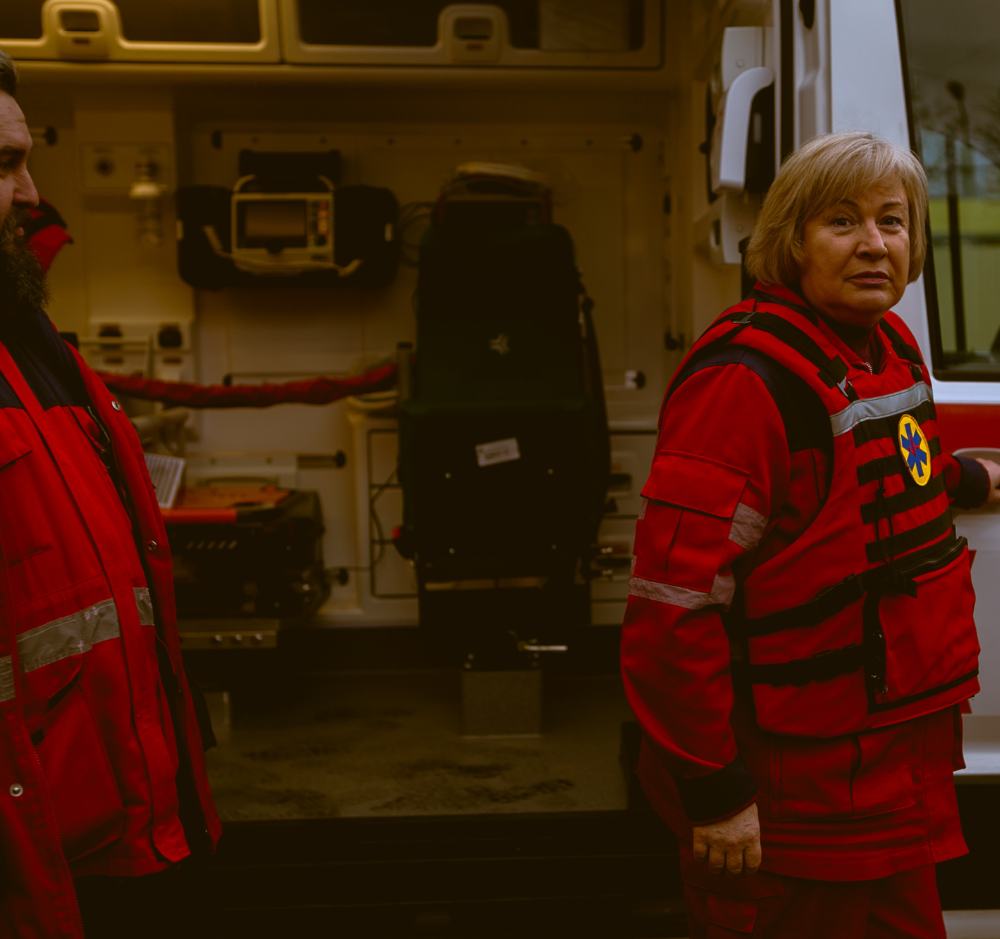
"I remember the story of a girl who was deeply frightened by the situation around her. She came for an examination to our pediatrician after leaving the occupied territories. She was about 12-13 years old. She was even afraid to speak. Our colleague, the pediatrician, worked with her for a long time, providing psychological support as well. This girl started to recover and eventually expressed her desire to become a medical aid doctor," Olena explains work details with children in their region.
The mobile teams operate within the framework of humanitarian response measures by UNFPA, the United Nations Population Fund in Ukraine, with financial support from the European Union, the Ministry of Foreign Affairs of Denmark, France, and the Republic of Korea.

